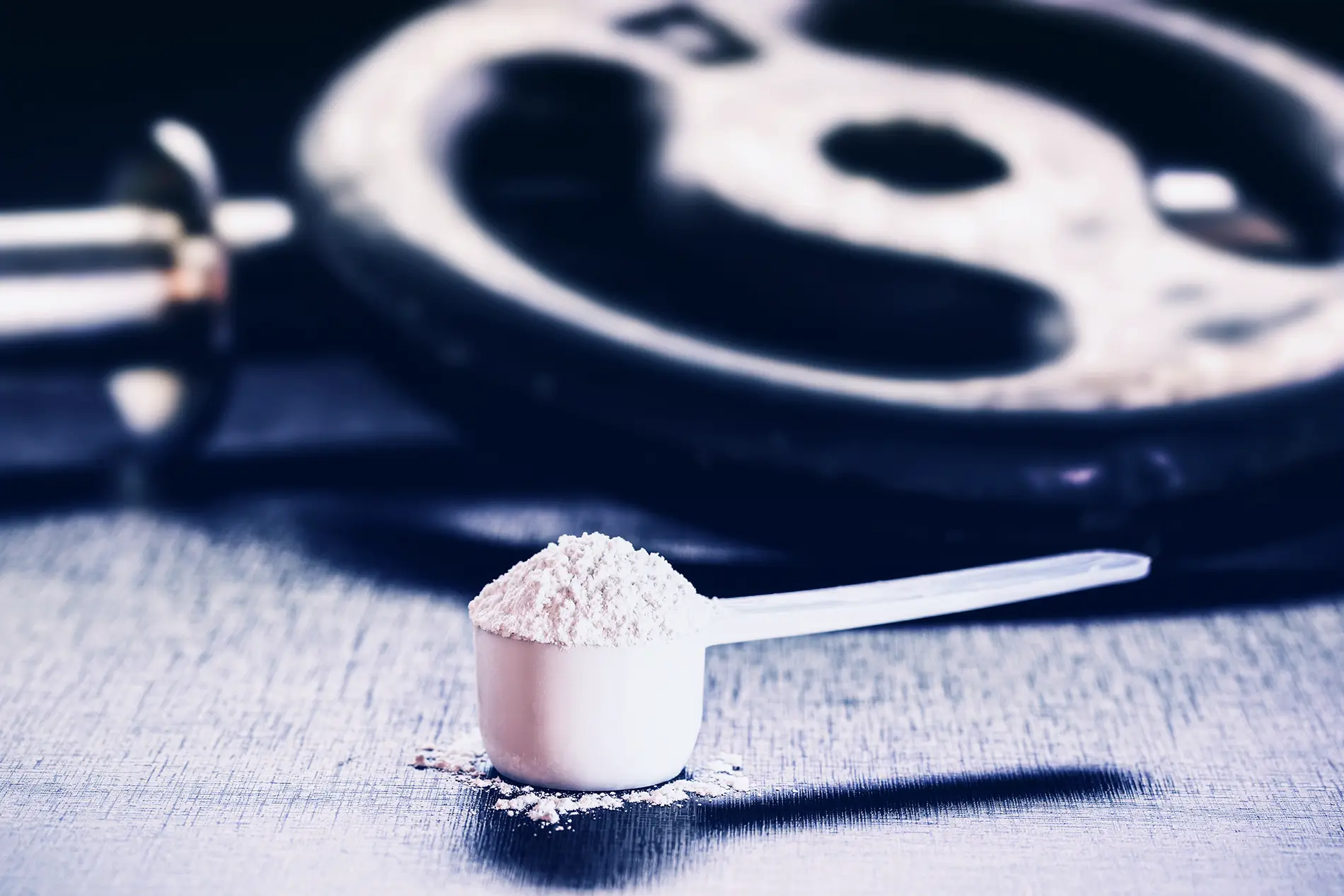This study explored how creatine supplementation affects lean body mass with and without training. In untrained adults, creatine increased lean mass after just one week, before any training began. But after 12 weeks of resistance training, there were no additional gains compared to a control group. So is creatine overhyped, or is there more to the story?
Overview
- What did they test? The researchers recruited 63 untrained adults and assigned them to one of two groups: 30 participants supplemented with 5 grams of creatine per day, while 33 received no supplement. During the first week (wash-in phase), no resistance training was performed. This was followed by 12 weeks of a supervised resistance training program undertaken by both groups. Lean body mass was measured using dual X-ray absorptiometry (DXA) at three time points: before supplementation, after one week, and after the full training period.
- What did they find? They found the creatine group gained significantly more lean body mass than controls (0.51 ± 1.26 kg, p = 0.03) during the wash-in week. Following resistance training, both groups gained around 2 kg (p < 0.0001), with no significant differences in lean mass gain from resistance training between groups (p = 0.71). The females also demonstrated greater overall gains (from baseline to after resistance training), gaining 0.59 ± 1.61 kg more lean mass than the control group (p = 0.04). However, no analysis showed that creatine supplementation led to greater lean mass gains during the training period itself when compared to the control.
- What does it mean for you? Creatine supplementation did not provide any added benefit during training beyond the effects of training alone. This is one of the first studies to directly assess changes in LBM with creatine both with and without resistance training. In untrained individuals, creatine did not enhance LBM gains from training. While these results are worth paying attention to, they should be considered alongside the broader body of research showing creatine’s effectiveness. Future research will need to show whether these findings hold true in trained populations.
What’s The Problem?
There’s a lot of hype in the supplement world, but creatine, specifically creatine monohydrate, is one of the few with a strong evidence base. It has consistently been shown to support improvements in resistance training adaptations. One recent meta-analysis reported that creatine can lead to approximately 1.1 kg greater gains in LBM when combined with resistance training 1. Another found a pooled mean effect size of 0.11 for direct measures of muscular hypertrophy, which reflects a very small but consistent effect 2. For strength, creatine has been associated with significantly greater improvements in upper-body (weighted mean difference, WMD = 4.95 kg) and lower-body strength (WMD = 11.35 kg) compared to placebo 3.
There are several proposed mechanisms for how creatine may enhance adaptations to resistance training. The most well-established is its ability to increase intramuscular creatine levels, which helps resynthesize adenosine triphosphate (ATP), the cell’s primary energy source. This can improve performance during high-intensity exercise 2. Other potential mechanisms include its influence on anabolic hormones such as insulin-like growth factor-1, satellite cell activity, genes that regulate muscle development, cellular hydration, and glycogen availability 1 2. Together, these effects may help support greater gains in both muscle mass and strength from training.
Although creatine is often associated with gains in LBM, much of the initial increase is likely due to changes in water content within muscle cells rather than the addition of new muscle protein. Increases in LBM have been observed in short-term studies without any training 4 5,However, in their meta-analysis, Delpino et al. 2 found no overall effect of creatine supplementation on LBM in the absence of training, including both short- and longer-term studies. This makes it even more important to distinguish between temporary shifts in body composition and true muscular adaptation.

Purpose
This study aimed to determine whether a seven-day creatine wash-in without resistance training would increase LBM, and whether those changes would influence further LBM gains from 12 weeks of training.
Hypothesis
The authors hypothesized that creatine supplementation would increase LBM during the wash-in period, and that this initial change would influence the magnitude of LBM gains during the subsequent training phase. However, they did not specify whether they expected this effect to enhance or reduce training-related gains.







